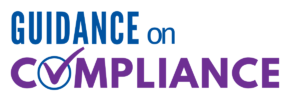The Minimum Data Set (MDS) is a federally mandated assessment used in Medicare or Medicaid-certified nursing homes to evaluate a resident’s functional abilities and healthcare needs. The MDS incorporates standardized elements, coding categories, and vital health indicators.
Validating the MDS is an essential step for skilled nursing facilities (SNFs) that is sometimes bypassed. The validation process ensures the accuracy of the data submitted to the Centers for Medicare & Medicaid Services (CMS). The MDS coordinator, in particular, plays a crucial role in this process. Since MDS assessments directly affect reimbursements and the facility’s compliance, it is vital for everyone involved to know how to review and understand MDS validation reports.
MDS validation matters for several reasons:
- It ensures the accuracy of data submitted to CMS.
- MDS assessments are directly linked to reimbursements.
- Facilities not complying with data submission standards risk reductions in annual payment updates.
What is iQIES?
The Internet Quality Improvement and Evaluation System, or iQIES, is a web-based platform created by CMS. It helps manage information about healthcare providers and patients. iQIES aims to improve the quality and cost-effectiveness of healthcare services. This system provides important data for Survey and Certification (S&C) purposes. It allows CMS and State Survey Agencies to monitor and track compliance among healthcare providers.
The MDS Validation Process
The MDS validation process consists of several key steps to ensure the accuracy and timeliness of the submitted assessments:
- Facilities must transmit MDS assessments to the iQIES. This submission must happen on time to follow federal regulations and avoid penalties.
- After receiving the MDS assessments, the MDS database runs automatic checks to verify that clinical responses are within valid ranges, dates in the assessments are logical, and assessments correspond with previous records for the same resident, ensuring consistent care and accuracy.
- Within 24 hours of the MDS submission, a Validation Report is generated. This report summarizes the performed checks and lists any errors or warnings found. Staff need to review this report carefully to address any issues that may arise.
- Address any Errors or Warnings.
- Errors must be corrected right away. This means reviewing the flagged items in the report, making necessary adjustments, and resending the updated MDS data to the iQIES.
- Warnings should also be looked at closely to prevent compliance issues. Facilities should examine these warnings and make changes to meet quality standards.
- Corrections and Resubmissions: If issues are identified, facilities must correct the assessments and resubmit them according to the guidelines outlined in Chapter 5 of the MDS 3.0 Resident Assessment Instrument (RAI) Manual.
Example:
A nursing facility submits MDS assessments for ten residents on February 10, 2025. Within 24 hours, the Final Validation Report is available. The facility reviews the report and identifies an error in Section GG (Functional Abilities), where coding inconsistencies triggered a warning. By correcting the issue and resubmitting the MDS, the facility avoids compliance penalties and ensures accurate Medicare reimbursement.
Consequences of Not Checking the MDS Validation Report
Failure to review and correct validation reports may lead to consequences, including:
- Reduced Medicare Payments: Incorrect data may result in lower reimbursements.
- Regulatory Non-Compliance: Repeated mistakes can result in a facility being audited or facing regulatory penalties.
- Compromised Resident Care: Inaccurate assessments may negatively impact the care planning process, affecting residents’ quality of care and outcomes.
Process Improvements to Ensure Compliance
To mitigate risks and improve accuracy, SNFs should:
- Regularly review MDS submissions before finalizing them, ensuring all information is correct and complete.
- Educate MDS coordinators and nursing staff on common validation issues.
- Keep track of changes in CMS guidelines and training materials.
- Establish a Quality Assurance (QA) Process. Designate a team to oversee MDS submissions and validation reviews.
Key Takeaways
- Timely and Accurate Submission: Ensure all MDS assessments are completed and submitted within the required timeframes to avoid compliance issues.
- Regular Data Review: Conduct routine checks of MDS data to ensure accuracy. Use tools to identify any discrepancies in the data to prevent errors.
- Stay Informed: Keep updated on MDS guidelines and validation procedures by regularly consulting the latest version of the MDS 3.0 RAI Manual and CMS announcements.
The CMS MDS validation process is a critical quality check for SNFs to ensure accurate reporting, compliance, and optimal Medicare reimbursement. The Final Validation Report is a key tool in this process. Facilities can enhance compliance and resident care outcomes by regularly reviewing their validation reports, promptly addressing errors, and implementing substantial process improvements. By adhering to these practices, SNFs can maintain the integrity of their MDS data, ensuring compliance and the delivery of high-quality care to their residents.
LW Consulting, Inc. (LWCI) offers a comprehensive range of services that can assist your organization in maintaining compliance, identifying trends, providing education and training, or conducting documentation and coding audits. For more information, contact LWCI to connect with one of our experts!


